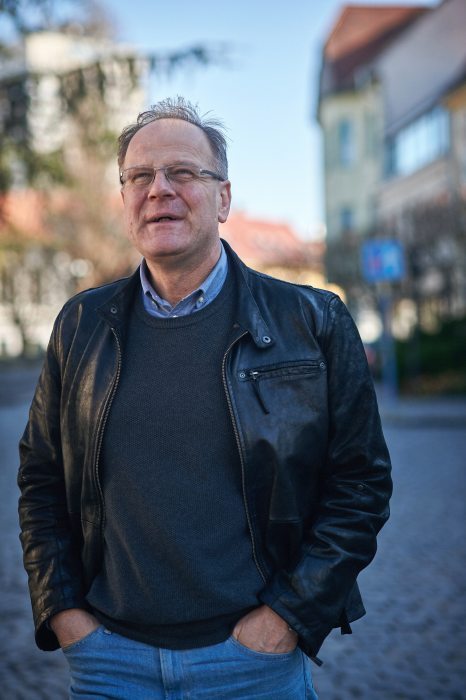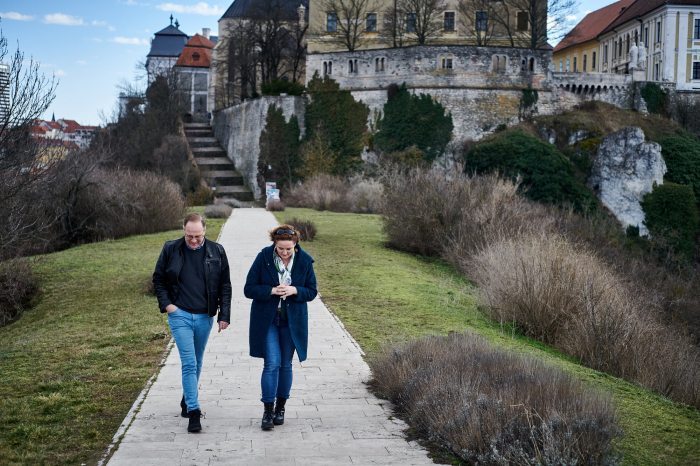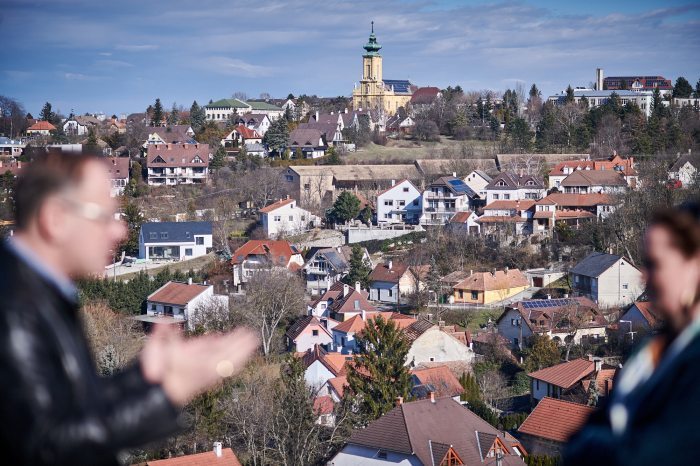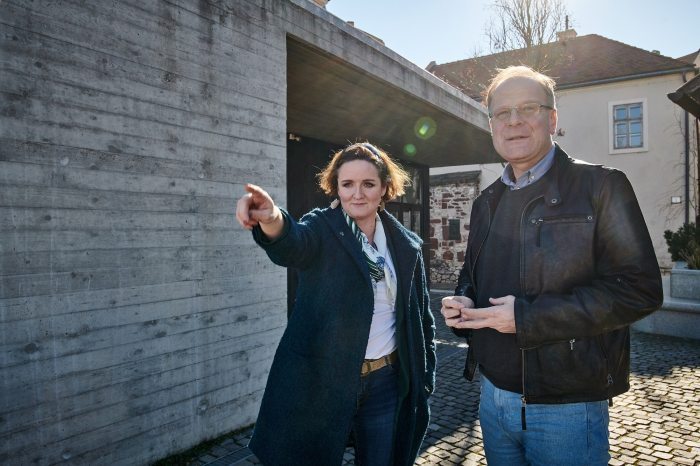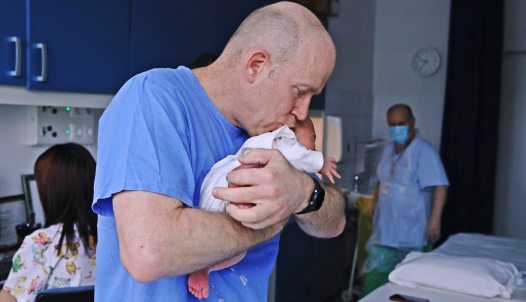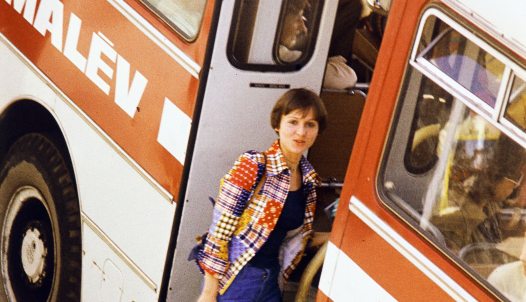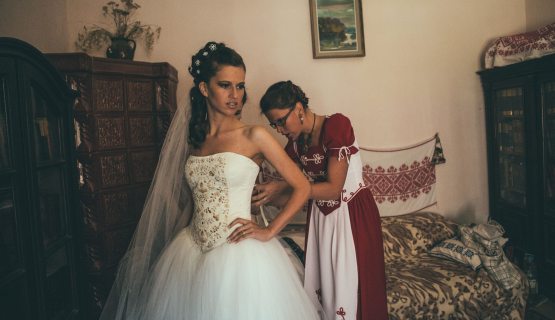Veszprém is to be European Capital of Culture in 2023 – An Interview with Tibor Navracsics Government Commissioner
Veszprém is a beautiful city. It's nice to walk around it, especially if you have a guide who knows every corner of the city and can tell you stories about his childhood, his personal connections, or city gossip. With Tibor Navracsics, the government commissioner responsible for the implementation of the Veszprém-Balaton 2023 European Capital of Culture program, we took a walk around the city of the queens and talked about why it's good for a city to win the chance to be the European Capital of Culture.
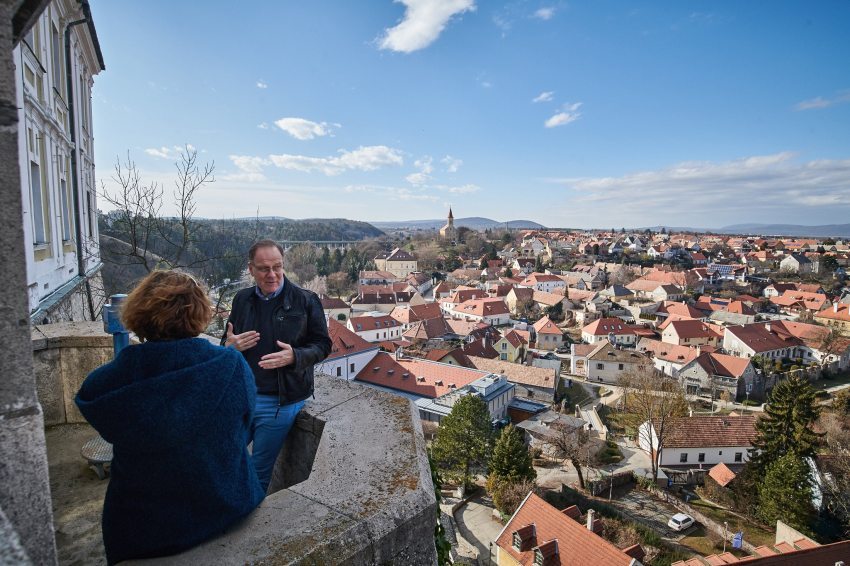
"There are two types of candidates for the title of Capital of Culture," the Commissioner begins, "one is a city that feels that its past and its traditions deserve European recognition and believes that the ECOC title will give it that. The other, and Veszprém is one of these, hopes that the ECOC will give it a way out of the category it is in and places it into one that it deserves. Veszprém can now reposition itself because although it is situated between the Bakony mountains and Lake Balaton, most people do not associate it with popular holiday destinations, and they only know the zoo or the castle, or that it is a county seat. In fact, Veszprém is one of Hungary's most vibrant cultural towns, with a thousand links to the Balaton-Highlands region and the surrounding settlements. We would like to show this not only to Hungarians but also to Europeans - although we do not overestimate this because we do not hear much about which towns have been designated this honor this year. But there is a section of European public opinion that is paying attention, and that is a discerning, educated, sophisticated section. Reaching them can pay off."
What the Hungarian public remembers most is that the city of Pécs was also the capital of culture once.
Those who have been to Transylvania know that Sibiu has also held this title and that both cities have seen spectacular infrastructural development, but we also remember the delays in investment and the social debate and unpleasant articles about it. I warn the Government Commissioner of this as we walk down the narrow slippery stairs of the castle. He replies that they have consulted the team from Pécs in good time, learned from their experiences, and have already planned their own program accordingly. The team in Pécs warned them of two important things: to pay attention to the timing of the investments and to involve the locals from the very beginning so that the people of the city feel the project is their own and do not feel as if the season is passing over them or without them. That is why it was decided that the bulk of the available funds would not be spent on renovating or constructing buildings, but on financing programs in the city and the region. These programs will be organized by local communities in the city center's cafés and restaurants, streets and squares, schools, and cultural institutions: street music festivals, film festivals, literary programs, and dance festivals are among the activities planned. The ECOC will also integrate well-established events in the region, such as the Valley of Arts or the other art festival, the Kőfeszt.
At the same time, of course, major investments are taking place, and we visit those, too.
Thanks to the ECOC, the now-vacant former children's hospital will become a movement center, the old meat market a digital playground, a multifunctional community space will be established in the castle, and the former dungeon will be turned into a museum, where a huge outdoor lift was being built when we visited the site, not to facilitate escape, of course, but for accessibility.
Veszprém won the competition along with the region, so many investments will be made in the surrounding settlements, with community spaces in Várpalota and Salföld, a conference center and exhibition space in Balatonfüred, and barn projects in the villages.
"The triad of the city, the university, and the archdiocese defines the cultural life here. As chairman of the board of trustees of the university foundation, I am also thinking long-term about the future of the city. Both the Archdiocese and the University are involved in the ECoC 2023 programs. The university campus will be renewed, creating a community space that will be both an information point and a café, running ECOC programs and involving volunteers. And the solar boat race on Lake Balaton, also organized by the university, will be an exciting event," the government commissioner explains.
The hope of the future
"The faith of our ancestors is the hope of the future." This inscription was placed on the altar of the Gizella Chapel in Veszprém in 1938, the year of the Eucharistic Congress in Budapest. It was this same spirit that guided the Archdiocese of Veszprém when it began the renewal of the castle quarter with courage and commitment, based on the traditions of the past but looking to the future", says Archbishop of Veszprém Dr. György Udvardy, who chose this phrase as the motto of the diocese.
The last time any investment of this scale was made in a culturally, ecclesiastically, and historically important area of Veszprém was about 100 years ago.
György Udvardy added that the development will be implemented with state funding of nearly HUF 40 billion, and the reconstruction works will be completed by 2025, but the results of part of the investment will be visible as early as 2023, as some of the buildings will be open to visitors as part of the European Capital of Culture event series. The development will involve 18 listed buildings, around 35,000 square meters of built area, and 10,000 square meters of open space. The Archbishop stressed that this work has been launched because they want to preserve the faith of our ancestors, the cultural and built heritage of their faith, and the values that create and sustain community.
Literature in the forest, at the train station, on a wine bottle
The literary programs of the ECOC 2023, the literary concept, and its implementation are the responsibility of József Attila Award-winning writer Ugron Zsolna. Zsolna spends part of her life on Szent György Hill, so both her living space and her creative workplace are on the Balaton Highlands, which is part of the designated region.
"We started with smaller programs and smaller events last year, and we will continue this year with more projects - gradually building up to 2023. Together with my colleague, Richárd Varga, one of our main objectives is to expand the space of literature, to bring literature to the public. In the city, in the forest, on wine bottles, at the train station. We started the Ruin concerts - musical literary evenings among the historical ruins of the region, such as Viki Szávai's Sándor Weöres Literary Evening at the Jesuit ruins in Veszprém. The Holtszezon (‘Off-season’) literary festival started this February, covering literary fields that are not traditionally represented at literary festivals, such as fantasy, science fiction, gastronomy, and youth literature. It has already been very popular this year, with full venues, cafés, and restaurants in Veszprém. From comic drawing workshops to autographing sessions, the program was very varied.
We involved the young people of Veszprém in organizing the events, thus, on the one hand, they could invite their favorites, and on the other hand, they often moderated and coordinated events.
We will have a reading booth in the Bakony forests - we are preparing this in cooperation with MOME: a booth in the forest packed with books where tourists can relax. In 2023 there will be a Petőfi Bicentenary, we will join the events of the Petőfi Cultural Agency, and we would like to have a big Petőfi event. We would like to bring the Szigliget Creative House back into the literary life, after all, it was one of the most important places for Hungarian literature in the 20th century, and we are working on the concept of this with Anna Juhász, the director of the Petőfi Cultural Agency’s priority programs. I hope that both the creative house and the park will be full of lyric poetry and prose this summer. But the One Wine, One Poem program is also among my favorites: winemakers from the Balaton Highlands choose a contemporary poem to accompany one of their wines, and they print it on the labels on the bottles. Last year, during the epidemic, on National Poetry Day, restaurants stuck a poem to the food they delivered. We hope that this will bring contemporary literature to a much wider audience and one or two of our programs will create a tradition in the region," explains Zsolna Ugron.
The organizers say it is very important to involve local people. Tibor Navracsics says that the typical problem of all big events is the so-called hangover, which means that once they are over and leave a void. "That's why it's important that the people of the city consider the ECOC’s programs their own, see what they themselves can do, and that's why we need programs that appeal to everyone. A school choir competition, a children's drawing competition, or a contemporary art festival are all equally valuable. The settlements in the region can connect by paying into the grant fund on a pro-rata basis and then redistributing the funds from there - this is another important way to make local people feel part of the programs that are being implemented, and that the programs are integrated into the life of the individual municipalities in an organic and intelligent way. This is also why volunteering is important because as a participant or organizer you can be involved in the programs in a totally different way. You can also join a group of young volunteers called the “Ragyogók” (“The Shining Ones”). It is also important that what remains after the programs shall be worth continuing. Sustainability should be taken into account even at the phase of distributing subsidies. If the commitments made in the tenders are realized, the region and the city can be on a sustainable upward trajectory."
Képmás magazine is launching a new series called Public Treasure, in which Kata Molnár-Bánffy, the publisher of Képmás, talks to dedicated people whose successful work can be of interest to many, and is a Public Treasure, as the title of the series suggests: a common issue, something we want to take care of.
